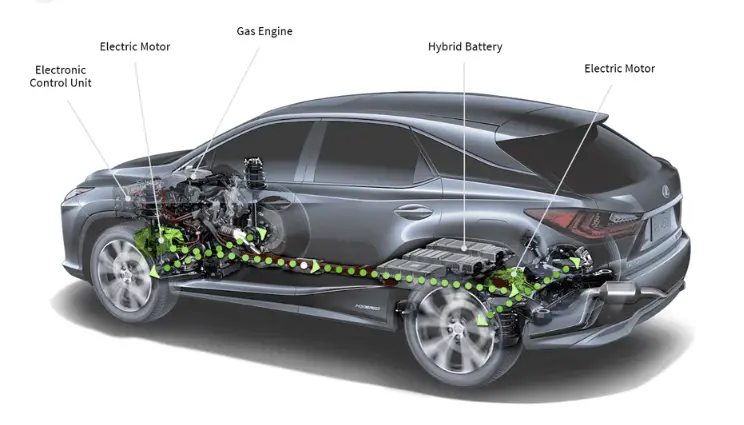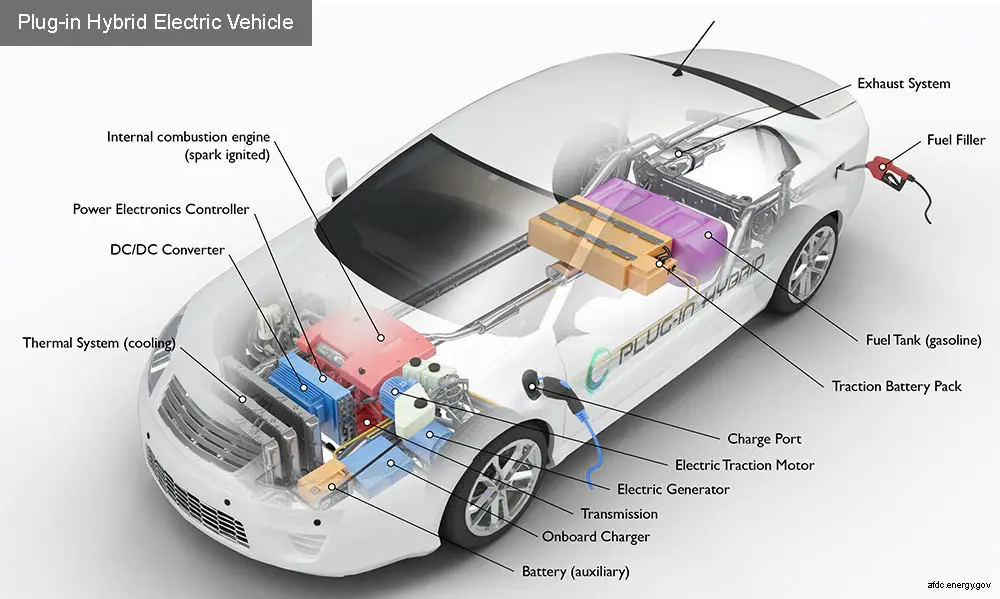No, a hybrid car cannot run without its battery. The battery is essential for starting the engine, powering the electric motor, and ensuring efficient performance. Without it, most hybrids won’t function properly.
Hybrid cars have become a symbol of modern automotive efficiency, blending internal combustion engines (ICE) with electric power to reduce fuel consumption and emissions. One of the most common questions from new hybrid car owners or those considering purchasing one is, “Can a hybrid car run without the battery?” This article delves into the mechanics of hybrid vehicles, their dependence on batteries, and answers whether or not a hybrid can function when the battery is dead or removed.

Contents
Hybrid Cars
Hybrid cars operate using two power sources: a conventional gasoline engine and one or more electric motors powered by a battery pack.
- Parallel Hybrid System: In a parallel hybrid system, both the internal combustion engine and the electric motor work in tandem. The car can switch between the two or use both simultaneously, depending on driving conditions.
- Series Hybrid System: In a series hybrid system, the gasoline engine doesn’t directly drive the car. Instead, it powers the electric motor, which is responsible for propulsion. In such systems, the battery is critical for vehicle operation.
- Plug-in Hybrid Electric Vehicle (PHEV): PHEVs have larger battery packs than traditional hybrids, allowing them to run exclusively on electric power for a certain distance before the gasoline engine kicks in.
The Role of the Battery in Hybrid Cars
Hybrid car batteries serve several key functions:
- Electric Motor Power: The battery powers the electric motor, enabling the vehicle to run on electric power alone at low speeds or in stop-and-go traffic.
- Boosting Fuel Efficiency: The battery allows the car to switch between electric power and gasoline, maximizing fuel economy.
- Regenerative Braking: When braking, energy is recaptured and stored in the battery, which helps recharge it and reduce the need for external charging or over-reliance on the internal combustion engine.
- Start-Stop Functionality: Many hybrids shut off the gasoline engine when the car comes to a stop, relying on the battery to power auxiliary functions (like air conditioning and power steering). When it’s time to move again, the electric motor restarts the engine seamlessly.
Read more about Grid Charger for Car Hybrid Battery Charging.
Can a Hybrid Car Run Without a Battery?
The simple answer is no—in most cases, a hybrid car cannot run without a functioning battery. However, the full explanation is more nuanced and depends on the type of hybrid system and the condition of the battery.
1. Traditional Hybrid Systems
For standard hybrids, the battery is an integral part of the system. The battery doesn’t just power the electric motor—it also provides essential functions, such as starting the internal combustion engine, operating electronics, and assisting with propulsion.
If the battery is dead, the car may experience significant issues such as:
- No Electric Power: The car will lose its electric driving capabilities, leading to poor fuel efficiency and performance.
- Start-Up Failure: In some hybrids, the electric motor is used to start the gasoline engine. A dead battery may prevent the car from starting altogether.
In short, a traditional hybrid car relies on its battery to operate efficiently. Even if the internal combustion engine is technically functional, it will not run well, if at all, without the battery.
2. Plug-in Hybrid Electric Vehicles (PHEVs)
PHEVs are designed with larger batteries to enable all-electric driving for short distances (typically 20-50 miles). Once the battery is depleted, the car switches to its internal combustion engine. However, even with a dead battery, the car can still run using gasoline, as long as the engine is operational.
That said, the battery is still necessary for certain vehicle functions. If the battery is completely dead or malfunctioning, the car may struggle to start, or essential systems may not function correctly, such as regenerative braking or electric motor support. For a PHEV, the car can continue to run on gasoline after the battery depletes, but this is not the same as running without a battery at all. A malfunctioning battery will cause problems.

3. Can You Remove the Battery?
It’s essential to note that you cannot simply remove the battery from a hybrid vehicle and expect it to run like a regular gasoline car. The hybrid system’s electronics are tightly integrated, and removing the battery could disrupt critical functions. Most hybrid cars would detect the absence of a battery and enter a “limp mode” or refuse to start entirely. The battery and electric components are interdependent, making the vehicle inoperable without them.
What Happens When the Battery Fails?
Hybrid batteries, especially in modern vehicles, are designed to last a long time, often around 100,000 to 150,000 miles. However, like all batteries, they can eventually fail. A failing battery can manifest in several ways:
- Diminished Fuel Economy: Since the electric motor will no longer assist the gasoline engine, you’ll notice reduced fuel efficiency.
- Reduced Power: Without electric motor support, the car may feel sluggish.
- Warning Lights: Hybrid vehicles will often notify you with dashboard warning lights if the battery is failing.
- Limited Functionality: Regenerative braking and electric-only driving will be lost.
If your hybrid battery completely dies, you’ll need to replace it to restore the car’s full functionality. Depending on the make and model, this can be an expensive repair, but some manufacturers offer extended warranties on their hybrid components.
Battery Replacement Costs and Longevity
Hybrid batteries are costly, with replacement prices ranging from $1,000 to $8,000, depending on the make and model. However, many hybrids come with warranties that cover the battery for 8 to 10 years or 100,000 to 150,000 miles.
Additionally, the cost of hybrid battery replacement is expected to decrease as technology improves and more options become available. Some third-party companies now offer refurbished hybrid batteries at a lower cost.
Can a Hybrid Car Run Without the Battery?
Hybrid cars also have a 12-volt battery (like conventional vehicles) that powers auxiliary systems such as lights, radio, and climate control. In some cases, a dead 12-volt battery can prevent the hybrid car from starting, even if the main hybrid battery is fully charged.
However, you can jump-start a hybrid vehicle with a dead 12-volt battery in much the same way you would a traditional gasoline car. Once the 12-volt battery is recharged, the car should start, and the main hybrid battery can take over.
Frequently Asked Questions
Here are some FAQs about hybrid car –
Can I drive my hybrid if the battery dies?
Yes, in some hybrid vehicles (like PHEVs), the car can run on gasoline after the battery depletes. However, in standard hybrids, the vehicle may not function properly or at all with a dead battery.
How long do hybrid car batteries last?
Hybrid batteries typically last 8 to 10 years or 100,000 to 150,000 miles, depending on driving habits and maintenance.
Can I replace a hybrid car battery myself?
Replacing a hybrid car battery requires specialized knowledge and tools. It is generally recommended to have it replaced by a professional mechanic or dealership.
What happens if my hybrid car’s battery dies while driving?
If the battery dies while driving, the car may switch to gasoline power (in a PHEV), but performance will be significantly reduced. In a standard hybrid, the vehicle may stop working.
How much does it cost to replace a hybrid battery?
The cost can range from $1,000 to $8,000, depending on the make and model of the vehicle. Refurbished batteries can be cheaper, but may not last as long.
Conclusion
In summary, a hybrid car cannot effectively run without its battery. While a plug-in hybrid may continue to run on gasoline once its electric power is depleted, the car still depends on a functioning battery for crucial systems. Traditional hybrid cars are even more reliant on their batteries for starting, propulsion, and fuel efficiency. Battery replacement can be expensive, but most hybrid batteries last for many years and come with extended warranties.
As hybrid technology continues to evolve, understanding the role of the battery in these vehicles is essential for anyone considering buying or maintaining a hybrid.